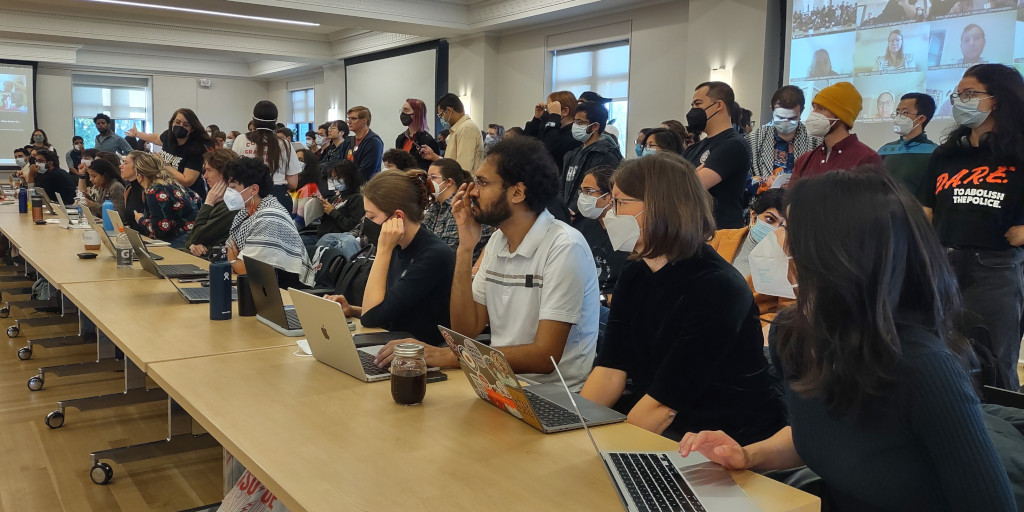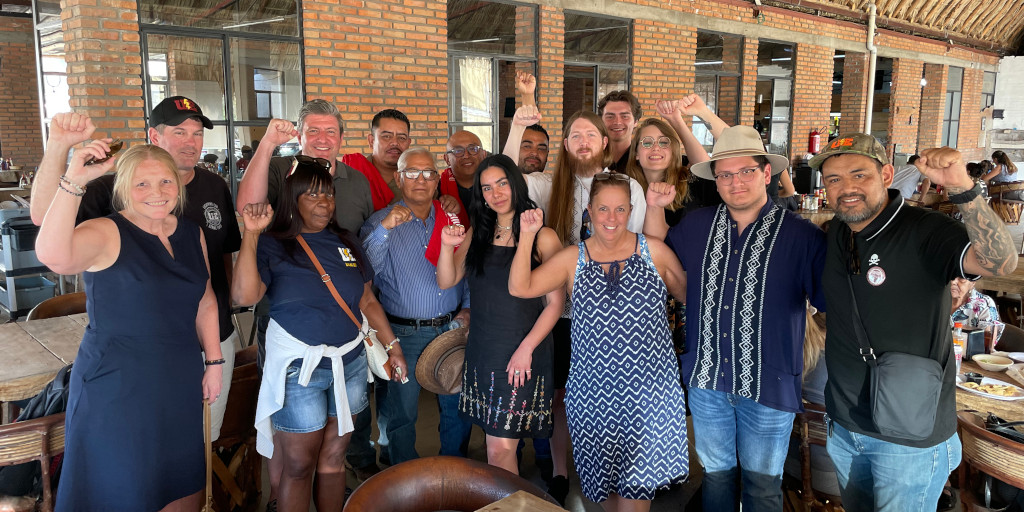
During their bargaining for a first contract, UE Local 300-Cornell Graduate Students United learned that one of their members had been threatened with being thrown out of school in retaliation for his participation in a peaceful protest, with no investigation or due process. He would have lost his job as a graduate worker and, as an international student, he would have been forced to leave the country.
The local issued a statement to their members and to the press, explaining how the threatened de-enrollment showed the need for just cause standards in their contract. This case was not just about the member’s protest activities, said Local 300 bargaining committee member Jawuanna McAllister, but “about power and who has control on campus.”
Local 300 highlighted the member’s case at a rally for workplace justice with campus and community allies. They brought over 100 members and, virtually, representatives of sibling graduate worker unions, to an opening bargaining session. The union blasted the discriminatory targeting of this particular grad worker, who was Black and Muslim. During the session, the university announced that they would not only not keep the member enrolled, but would bargain with the union over the effects of discipline on the worker’s employment.
McAllister said the experience “allowed us to set up more of an infrastructure” for dealing with suspensions, and helped the local educate its members as to the importance of standing up when members are disciplined without due process.
Workers’ solidarity — a union’s strength — is based on their unity. To succeed in the workplace, local union members must be united. Unity requires outspoken opposition to racism, sexism, and all other forms of discrimination and harassment. Decades of experience tell us that employers hunt for ways to divide workers. Employers will work hard to pit race against race, shift against shift, men against women, straight against LGBTQ+, English-speaking against non-English-speaking, young against old. “United we stand, divided we fall,” remains as true today as ever.
Officers and stewards must be representative of the workforce
When the union leadership represents the diversity of the membership, it is harder for the employer to sow the seeds of discord. Union leaders have a responsibility to speak out — and take action — against any form of discrimination practiced by the employer. Union leaders also have a responsibility to take corrective action if a wayward union member attempts to harass or intimidate another union member.
Global solidarity
UE takes unity a step further than most by reaching beyond borders, extending the ideal of solidarity to workers in other countries. We believe that working people from all countries must work together. We often share a common employer and suffer the same attacks on our standard of living. While some unions have fallen into the bosses’ trap of blaming low-wage workers in other countries, UE recognizes that low wages exist not because people like living in poverty, but because large corporations and repressive governments make money by forcing people to work for poverty-level wages — often with the assistance of the U.S. government’s foreign policy and military.
